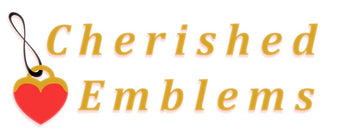Choosing between cremation and burial is a deeply personal decision, shaped by individual beliefs, family traditions, and practical considerations. As you navigate this sensitive topic, it's essential to understand why cremation has become an increasingly popular choice for many families.
Why Cremation is Growing in Popularity
In recent years, more than half of Americans have opted for cremation, and this number is expected to rise significantly, reaching nearly 80% by 2040, according to the National Funeral Directors Association. Understanding the reasons behind this shift can help you make an informed and meaningful choice.
Common Reasons Families Choose Cremation
Cost Considerations
Traditional funerals can be costly, often reaching upwards of $10,000 due to expenses like embalming, caskets, burial plots, and headstones. Cremation typically costs significantly less—often less than half of a traditional burial—providing financial relief during an already stressful time. Basic cremation services usually range from $2,000 to $3,000, compared to traditional burials averaging between $7,000 and $10,000.
These savings can be significant for families experiencing financial constraints, allowing them to allocate resources toward meaningful memorials, such as cremation jewelry or other cherished keepsakes.
Environmental Awareness
Cremation has a smaller environmental impact compared to traditional burials, which require extensive land use, resources like hardwood and concrete, and involve chemicals such as embalming fluids that can affect the environment. Families who value sustainability often feel comforted knowing their choice aligns with eco-conscious values. Cremation methods like alkaline hydrolysis offer significantly reduced environmental impacts.
Personalized Memorials
Cremation allows greater flexibility for families to create personalized memorials. Ashes can be scattered in a cherished location, kept in a beautifully crafted urn, or shared among loved ones through keepsake jewelry and art pieces. These personalized memorials provide meaningful ways to remember and celebrate a loved one's life.
Evolving Religious and Cultural Perspectives
Historically, certain religions restricted cremation, but today, most faiths, including the Catholic Church, accept the practice. The Catholic Church, for example, has recognized cremation since 1963. As cultural attitudes become more inclusive, cremation aligns more closely with personal or spiritual beliefs.
Geographic and Family Flexibility
Modern families often live far apart. Cremation simplifies logistics, allowing ashes to be transported easily across state lines or countries. Families can plan memorial services at convenient times and locations, facilitating meaningful gatherings without geographic constraints.
Space and Simplicity
Urban areas face limited burial space, making cremation a practical choice. Cremation addresses these issues by requiring minimal space, easing concerns about overcrowded cemeteries. Additionally, cremation involves fewer logistical arrangements, simplifying the emotional burden on grieving families.
Addressing Personal Fears and Concerns
Fear of decomposition is a genuine concern for some individuals. Cremation offers comfort by quickly reducing the body to ashes. This alternative provides psychological relief to those troubled by traditional burial practices.
Celebrating Life
Cremation supports a broader shift towards celebrating life. Families often choose cremation to facilitate personalized, uplifting memorial services that genuinely reflect the individual's personality and values.
Frequently Asked Questions about Cremation
Why do people choose cremation?
People often choose cremation due to lower costs, environmental considerations, personal beliefs, or geographic practicality. It provides flexibility and personalized memorialization.
What is cremation?
Cremation is a process using high heat to reduce the body to ashes. Alternative methods, like alkaline hydrolysis, offer an even more environmentally friendly option.
Is cremation accepted by religious traditions?
Most modern religious traditions accept cremation. It is advisable to discuss any concerns with your spiritual advisor.
Why are cremations typically performed during the day?
Daytime cremations are common due to staffing, energy costs, and regulatory compliance. Facilities may accommodate nighttime requests upon arrangement.
Making the Right Choice for You and Your Family
Deciding whether cremation is the right choice involves thoughtful reflection, open communication, and understanding your options. Discuss your preferences ahead of time to ensure your wishes are honored.
At Cherished Emblems, we recognize the sensitivity and importance of these decisions. Whether choosing cremation or burial, the best choice is one that brings comfort and meaningful remembrance during a challenging time.


